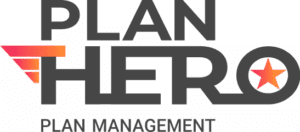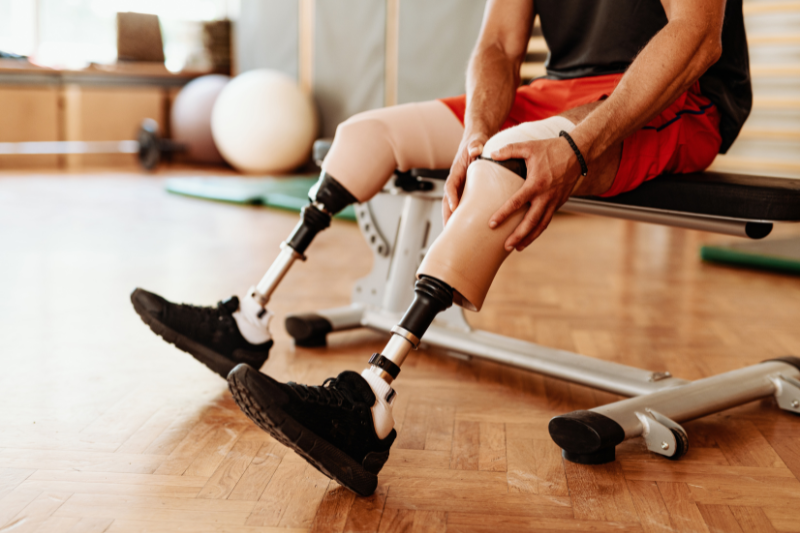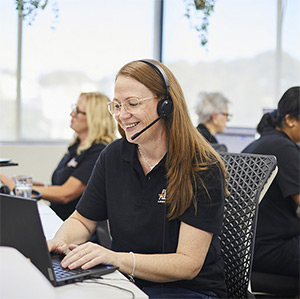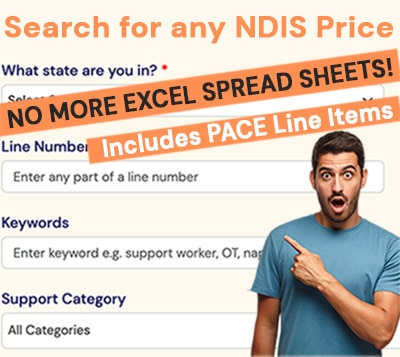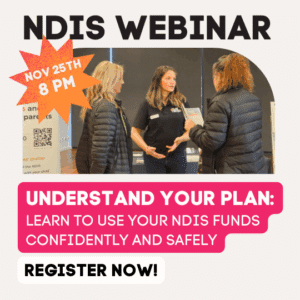What Supports I Can Buy from Approved NDIS Support List?
NDIS supports refer to services, items, and equipment that can be funded by the NDIS.
These aim to help participants live independently, participate in community life, and improve their wellbeing.
They are grouped into 37 categories.
The list of allowable NDIS supports does not exclude items that are not specifically listed.
The purpose of the list is to clarify the types of supports included in the general description.
It is important for Participants to know that for something to be considered an NDIS support, it must:
- fit WITHIN the general description provided (but, it does not have to be specifically listed) and
- must not be included in the non-allowable NDIS supports list.
NDIS Supports You Can Spend Your Funding On – A quick guide
Accommodation & Tenancy Support
Help with rental applications, tenancy obligations, and short-term accommodation when long-term housing isn’t ready.
Assistance Animals
- Covers matching, training, care, and vet needs of eligible assistance animals.
Life Transitions & Coordination
- Help with transitions (e.g., leaving school, hospital, or custody) and support coordination.
Employment & Education Access
- Support to prepare for, find, and maintain employment or further education.
Daily Life in Shared Living
- Supervision and help with daily tasks in shared or aged care settings.
Transport
- Travel assistance for community participation, education, or training in independent transport use.
Recreational Equipment
- Modified sports and recreation gear, including training and maintenance.
Household Task Aids
- Devices to assist with cleaning, cooking, gardening, etc.
Personal Care & Safety Products
- Includes hygiene, adaptive clothing, incontinence aids, safety furniture, and visual/tactile alert systems.
Communication Equipment
- Devices and tools to help send, receive, or process information.
Community Nursing Care
- Clinical support for high needs (e.g., catheter care, injections, training support workers).
Customised Prosthetics & Orthotics
- Custom devices and training for physical functionality.
Daily Personal Activities
- Help with eating, hygiene, mobility, and personal care.
Skill Development
- Training in cooking, budgeting, social skills, and using public transport.
Disability-Related Health Supports
- Support for managing conditions like diabetes, epilepsy, and wound care.
Early Childhood Intervention
- Therapy and key worker supports for children 0–9 years.
Exercise & Wellbeing
- Physical training to improve mobility, balance, and fitness.
Group & Centre-Based Activities
- Support for participating in group social and recreational activities.
Hearing Equipment
- Hearing aids and equipment not covered by Hearing Services Program.
High Intensity Personal Care
- Complex daily personal support by qualified workers.
Home Modifications
- Changes to home layout or equipment to improve accessibility and safety.
Household Tasks
- Help with meal prep, cleaning, laundry, or maintenance.
Innovative Community Participation
- Custom supports for people with unique social inclusion needs.
Interpreting & Translation
- Language services for communication in social and community settings.
Plan Management
- Support to manage funding and NDIS plans via registered providers.
Community Participation
- Support to engage in community, civic, and cultural life.
Personal Mobility Equipment
- Walking aids, wheelchairs, hoists, and related services.
Positive Behaviour Support
- Plans and training to manage behaviours of concern.
Specialist Disability Accommodation (SDA)
- Housing solutions for participants with high needs or impairments.
Driver Training
- Lessons with adapted vehicles and equipment.
Specialised Hearing Services
- Audiology services for complex hearing needs.
Supported Employment
- Help to prepare for and keep a job.
Support Coordination
- Help connecting with community and funded supports.
Therapeutic Supports
- Therapy to improve communication, mobility, psychosocial functioning, etc.
Vehicle Modifications
- Changes to vehicles for safe use (e.g., hoists, restraints), excluding vehicle purchase.
Vision Equipment
- Navigation, braille, magnifiers, and note-taking tools.
What if the support I need is not on the list?
A support is allowed if it’s GENERAL DESCRIPTION appears in the list. It does not have to be specifically listed.
NOTE: It cannot be included in the non-allowable NDIS supports list.
Replacement Support List
The NDIS released a Replacement Support List – this is a list of substitutions you can use if what you want to spent your funding on is NOT on the NDIS approved list.
Here is a detailed resource about the Replacement List and How to Apply (there are lots of rules)
- You must submit this request in writing to the NDIS.
- Here is the Replacement List
(Easy Read)
Sources
